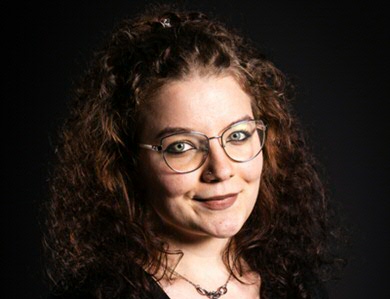
Do you want to be at the forefront of the digital turn in the humanities? The current information revolution opens up exciting perspectives for research and its applications in society.
This Master's track equips you to look at culture, language, history or philosophy through the lens of digital methods.
We are witnessing many exciting new trends in information
technology. The vast amount of digital data that is available
nowadays opens up new research questions and opportunities for real
life applications. This Digital Humanities track offers a
systematic way to incorporate information technology in humanities
research.
It trains students with a humanities background for the growing
number of research and other job opportunities that require
processing of digital information. It reflects on the underlying
theory and the impacts on our culture and society. It offers
courses for collecting, analyzing and visualizing humanities data.
Finally, you will be skilled to work with professional databases,
programming scripts, and statistical tools.
Students who graduated successfully from this programme were able to integrate a humanities perspective with computational methods. For instance, the thesis “Visualizing trade” (2018), in which an analysis of the Baltic trade in the 18th century was done by using visualization applications on the Sound Toll registers. Another example is the thesis “Accountability across the AI regulatory landscape” (2025) employed topic modeling to contextualize accountability in AI regulatory frameworks around the world. By combining macro- and a microscopic views, the student was able to implement a Digital Humanities approach to a societal problem not just to identify patterns and analyze them, but also suggesting new interpretations.
| Semesters | ||||
|---|---|---|---|---|
| CoursesCourse Catalog > | 1a | 1b | 2a | 2b |
| Coding for Humanities (5 EC) | ||||
| Database Design (5 EC) | ||||
| Understanding Digital Humanities (5 EC) | ||||
| Work Placement DH (10 EC, optional) | ||||
| Collecting Data (5 EC) | ||||
| Data in Society (5 EC) | ||||
| Digital Humanities: Tools and Methods (5 EC) | ||||
| Analyzing Data (5 EC) | ||||
| Software and Data as Culture (5 EC) | ||||
| Thesis Lab (5 EC) | ||||
| MA Thesis (15 EC) | ||||
The courses in the programme are organised according to three specializations: theory (Understanding Digital Humanities; Data in Society; Software and Data as Culture), data processing (Collecting Data, Analyzing Data, Digital Humanities: Tools and Methods) and skills (Database Design, Coding for Humanities, Thesis Preparation).
Study abroad is not an option for this programme
| Specific requirements | More information |
|---|---|
| previous education |
Prospective students from the University of Groningen with a Bachelor's degree in Arts, from the Faculty of Arts, Philosophy or Religion, Culture and Society are directly admissible to this Master's programme. Students with a Bachelor's degree in Arts from another Dutch Research university are also directly admissible to this Master's track. |
| language test |
Additional requirements English: A VWO diploma or a subject certificate for VWO English (mark 6 or higher), minimum requirement of TOEFL iBT 90 (with a minimum of 21 on all items), or IELTS 6.5 (with a minimum of 6 on all items) or Cambridge C1 Advanced or C2 Proficiency. |
| other admission requirements |
University of Groningen students are encouraged to take the Minor Digital Humanities during their Bachelor's. |
| Study programme | Organization | Transition |
|---|---|---|
| Muziekwetenschap | All Research universities | No additional requirements |
| American Studies | All Research universities | No additional requirements |
| Arts, Culture and Media | All Research universities | No additional requirements |
| Media Studies | All Research universities | No additional requirements |
| History, History (part-time) | All Research universities | No additional requirements |
| Philosophy | All Research universities | No additional requirements |
| Theology | All Research universities | No additional requirements |
| Film and Literary Studies | All Research universities | No additional requirements |
| Theatre Studies | All Research universities | No additional requirements |
| Archaeology | All Research universities | No additional requirements |
| Taal- en Cultuurstudies | All Research universities | No additional requirements |
| Linguistics | All Research universities | No additional requirements |
| Engelse Taal en Cultuur | All Research universities | No additional requirements |
| Arts and Culture Studies | All Research universities | No additional requirements |
| Art History | All Research universities | No additional requirements |
| Communication and Information Studies | All Research universities | No additional requirements |
| English Language and Culture | All Research universities | No additional requirements |
| Study programme | Organization | Transition |
|---|---|---|
| International Relations and International Organization | University of Groningen | No additional requirements |
| Religious Studies | University of Groningen | No additional requirements |
| Classics (part-time) | University of Groningen | No additional requirements |
| Frisian Language and Culture | University of Groningen | No additional requirements |
| Middle Eastern Studies | University of Groningen | No additional requirements |
| European Languages and Cultures | University of Groningen | No additional requirements |
| Dutch Language and Culture | University of Groningen | No additional requirements |
| Information Science | University of Groningen | No additional requirements |
| Philosophy of a specific discipline | University of Groningen | No additional requirements |
| Liberal Arts and Sciences | University of Groningen | No additional requirements |
Note: it's not possible to start in February. For more information, please contact the study advisor.
| Type of student | Deadline | Start course |
|---|---|---|
| Dutch students | 15 August 2026 | 01 September 2026 |
| 15 August 2027 | 01 September 2027 | |
| EU/EEA students | 01 May 2026 | 01 September 2026 |
| 01 May 2027 | 01 September 2027 | |
| non-EU/EEA students | 01 May 2026 | 01 September 2026 |
| 01 May 2027 | 01 September 2027 |
| Specific requirements | More information |
|---|---|
| previous education |
Prospective students from a non-Dutch Research university need to have obtained a minimum of 120 ECTS of courses in the humanities to apply for this Master's track. These courses need to be roughly equivalent in their content to courses that can be completed at the UG (at the Faculty's of Arts, Philosophy and Religion, Culture and Society. In our digital study guide Ocasys (https://ocasys.rug.nl/current) you are able to find courses belonging to these programmes at the UG, so you can match these and their learning outcomes with the courses you have taken during your Bachelor's degree. |
| language test |
Additional requirements English: A VWO diploma or a subject certificate for VWO English (mark 6 or higher), minimum requirement of TOEFL iBT 90 (with a minimum of 21 on all items), or IELTS 6.5 (with a minimum of 6 on all items) or Cambridge C1 Advanced or C2 Proficiency. |
| other admission requirements |
University of Groningen students are encouraged to take the Minor Digital Humanities during their Bachelor's. |
Note: it's not possible to start in February. For more information, please contact the study advisor.
| Type of student | Deadline | Start course |
|---|---|---|
| Dutch students | 15 August 2026 | 01 September 2026 |
| 15 August 2027 | 01 September 2027 | |
| EU/EEA students | 01 May 2026 | 01 September 2026 |
| 01 May 2027 | 01 September 2027 | |
| non-EU/EEA students | 01 May 2026 | 01 September 2026 |
| 01 May 2027 | 01 September 2027 |
The Digital Humanities masters' programme benefits from a strong relationship between teaching and research, and students are encouraged to join an active research project for the writing of their thesis. Several supervisors of DH theses are scholars who won prestigious research grants (ERC, NWO). A good example of this embedding is the thesis 'Effectively Classifying Texts Affectively', which was written in the context of an ERC research project on the role of Spotify in the music industry.


Hi, my name is Henry! I'm 24 years old and I originally come from Germany, but I grew up living abroad. Since September, I have been studying the Digital Humanities track of the Communication Science masters.
